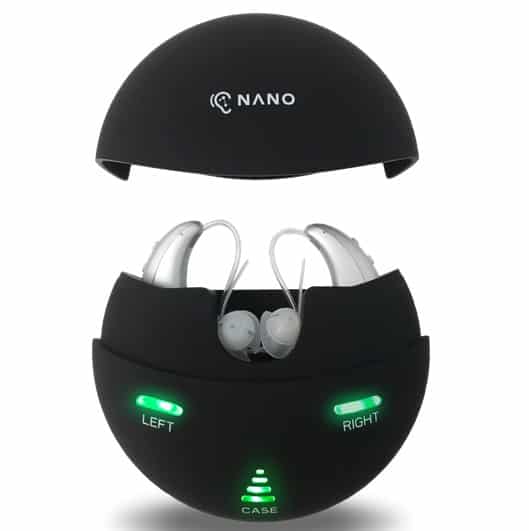Nano Digital Hearing Aids, one of the American companies that served the nation the longest in the provision of digital hearing aids, released a statement addressing speculations made by people in the press on Covid-19 and hearing loss.
As a trusted American brand, Nano Digital Hearing Aids raised concern about potential fake news that is paddled by alternative tech news channels, at a time when accurate information is more important than ever. While it is absolutely true that people with hearing loss face challenges in dealing with the fallout of the Coronavirus as suggested in the Johns Hopkins press, the concern surrounds potentially alarming and unsubstantiated claims that “Covid-19 may cause hearing loss.”
The spokesperson for Nano Digital Hearing Aids said: “Neither Doctors nor the WHO confirmed it as a widespread incident hence it is not appropriate to generalise or even speculate about it at this early stage. People who only suffer from hearing loss and no other symptoms should stay calm and follow the normal procedure of talking to an ENT Doctor about any symptoms of hearing loss. It is worth remembering that as we have seen from Covid-19 in Italy and other countries: when people without the virus went to hospital out of concern, they may have been infected upon arrival, as was also the case for thousands of medical professionals.”
How the Covid-19 pandemic affects many who are disabled:
Those with hearing loss may be just one of several disabled groups who are affected adversely by the pandemic. Besides having to deal with the usual precautions such as social distancing and often draconian lockdowns, these groups face special challenges. For those with hearing and vision problems, communication and access to critical information is a real challenge: something many governors did not make provision for in time. In a dynamic situation where things change rapidly, they have a real struggle to obtain updated information. In many ways, these citizens can easily be left behind. In Europe and the US, where we are supposed to be champions of equal opportunities, it simply is not the case right now – and there is real cause for concern with many lessons to be learned.
How to help disabled citizens during the Coronavirus pandemic:
In cases of intellectual disabilities, monitoring is crucial. Yes, nurses and frontline staff are well capable of dealing with all forms of disabilities. However the missing link is prior to these people reaching the hospital – and crucially, in pandemic hotspots, to help them avoid visiting an infectious medical facility in cases where there is no need. So under ideal circumstances it will involve some type of pre-screening away from hospital. Moving onto physical disabilities, such as vision, hearing, ability to move around (mobility), these will all require a different approach. Care homes are well trained on these cases- although different governments issue different guidelines on dealing with this: for example here is what the UK government suggests for its citizens.
About Nano Digital Hearing Aids:
It is an American patriot organization with a passion to empower disabled persons to live a normal life and to enjoy equal opportunities. It is well-known for helping veterans to access hearing aids through frequent charitable outreach. It is one of the first US companies who succeeded at reducing the price of digital hearing aids to make it more affordable, without compromise to the quality of products. Of all the many products that Americans compare online, such as Costco Hearing Aids, MD Hearing Aids, Hearing Assist and so forth, Nano Digital Hearing Aids continues to receive some of the highest search demand on the web, with largely positive reviews. The owners of the company are modest about their active support for the disabled worldwide. They contribute most generously towards research and development in the area of hearing loss.
Conclusion:
Keeping up to date with government announcements during the COVID-19 crisis is important. The ability to do so should not be taken for granted. Think about those who are less fortunate, who may need assistance in accessing critical information. Regardless of weather it is hearing, vision or any other form of disability: there are unique ways to support these people throughout the pandemic.

